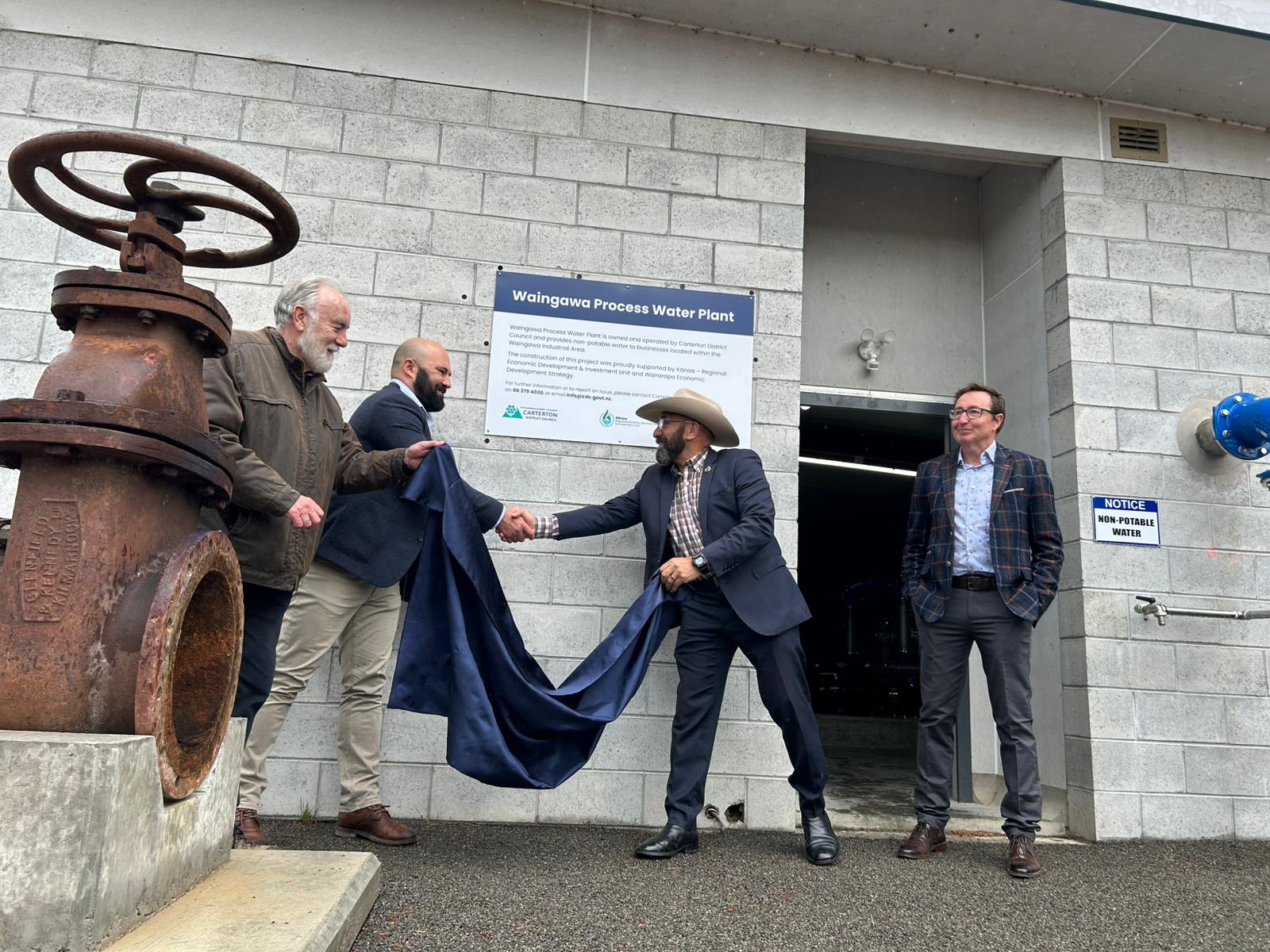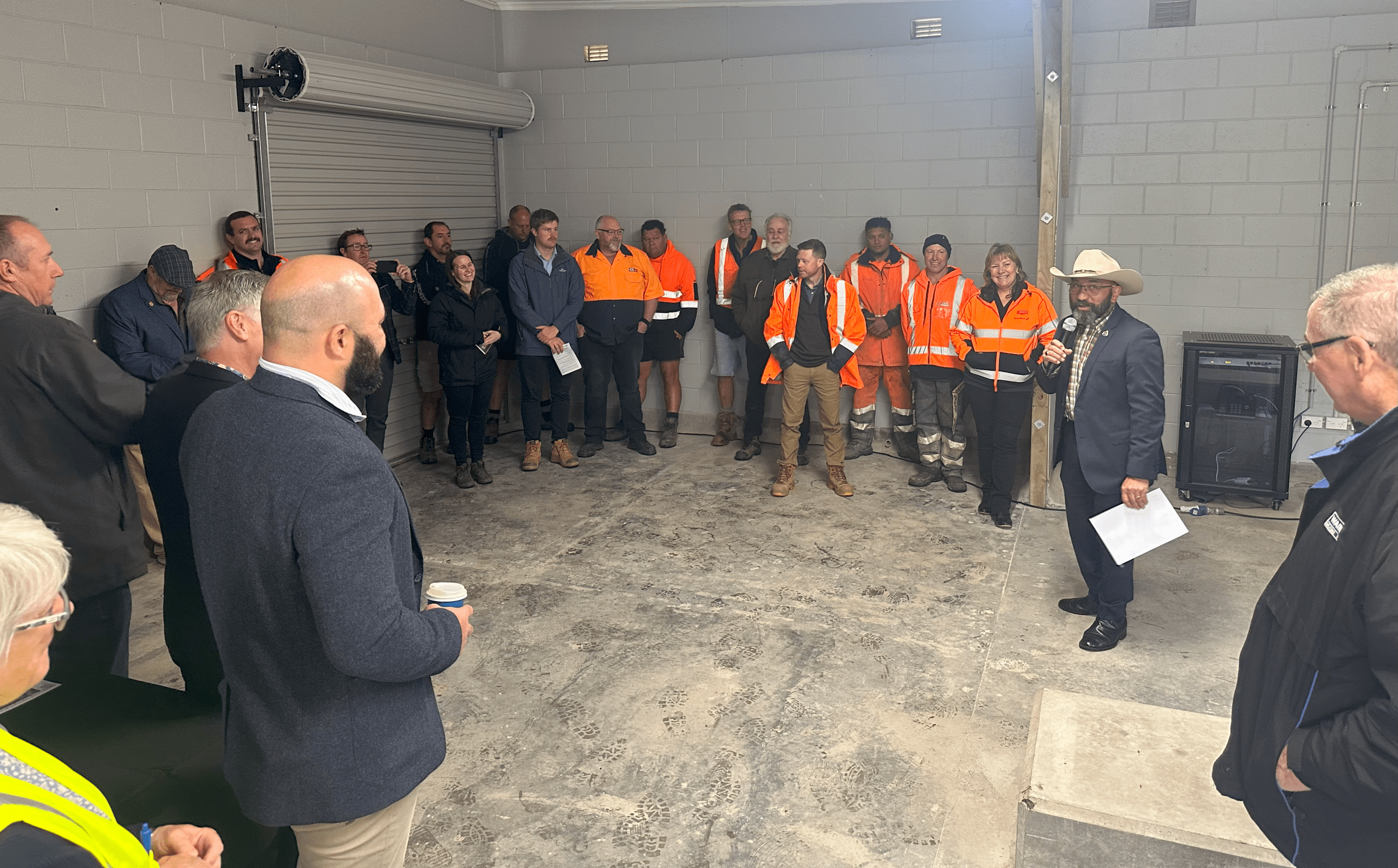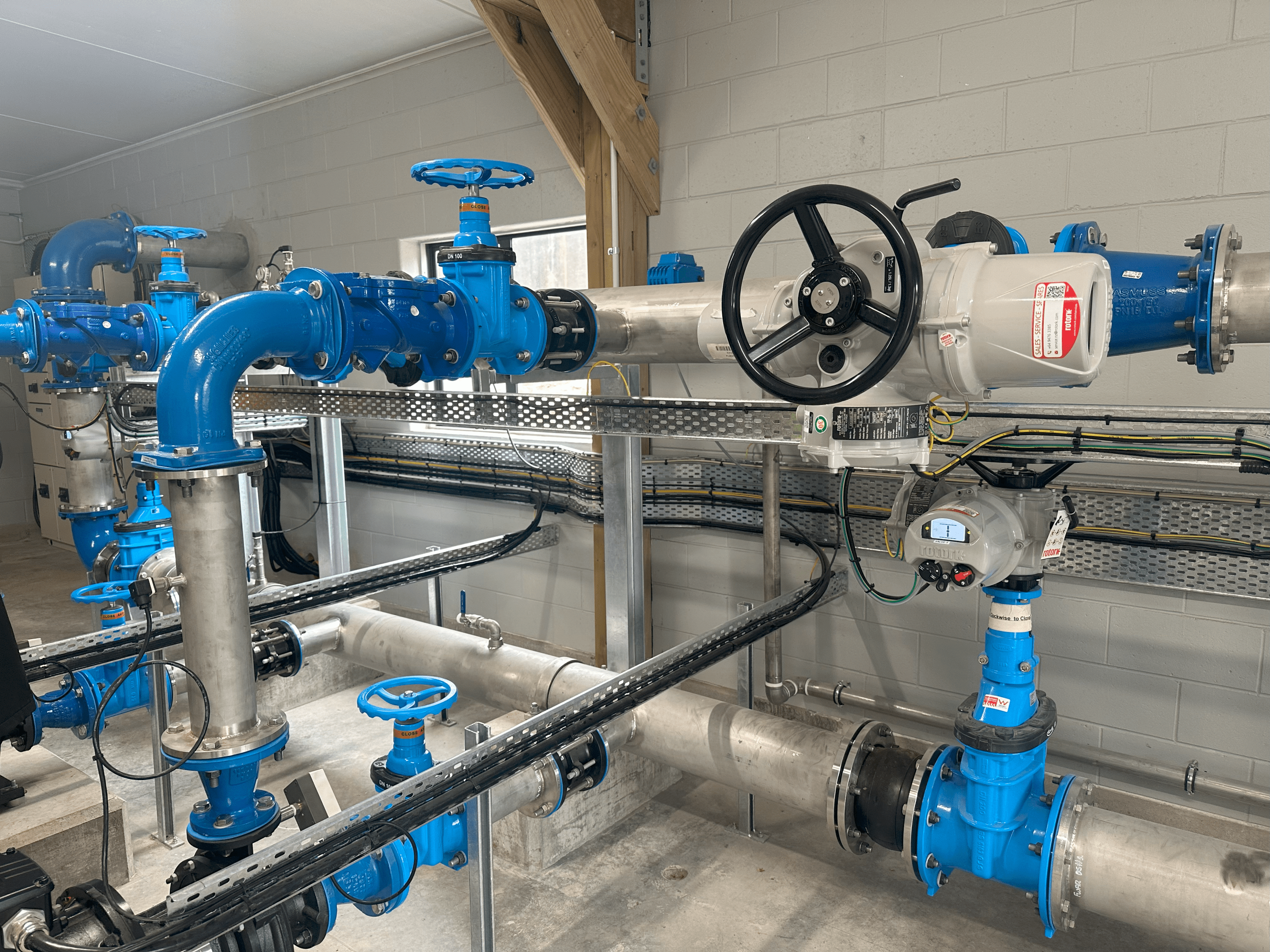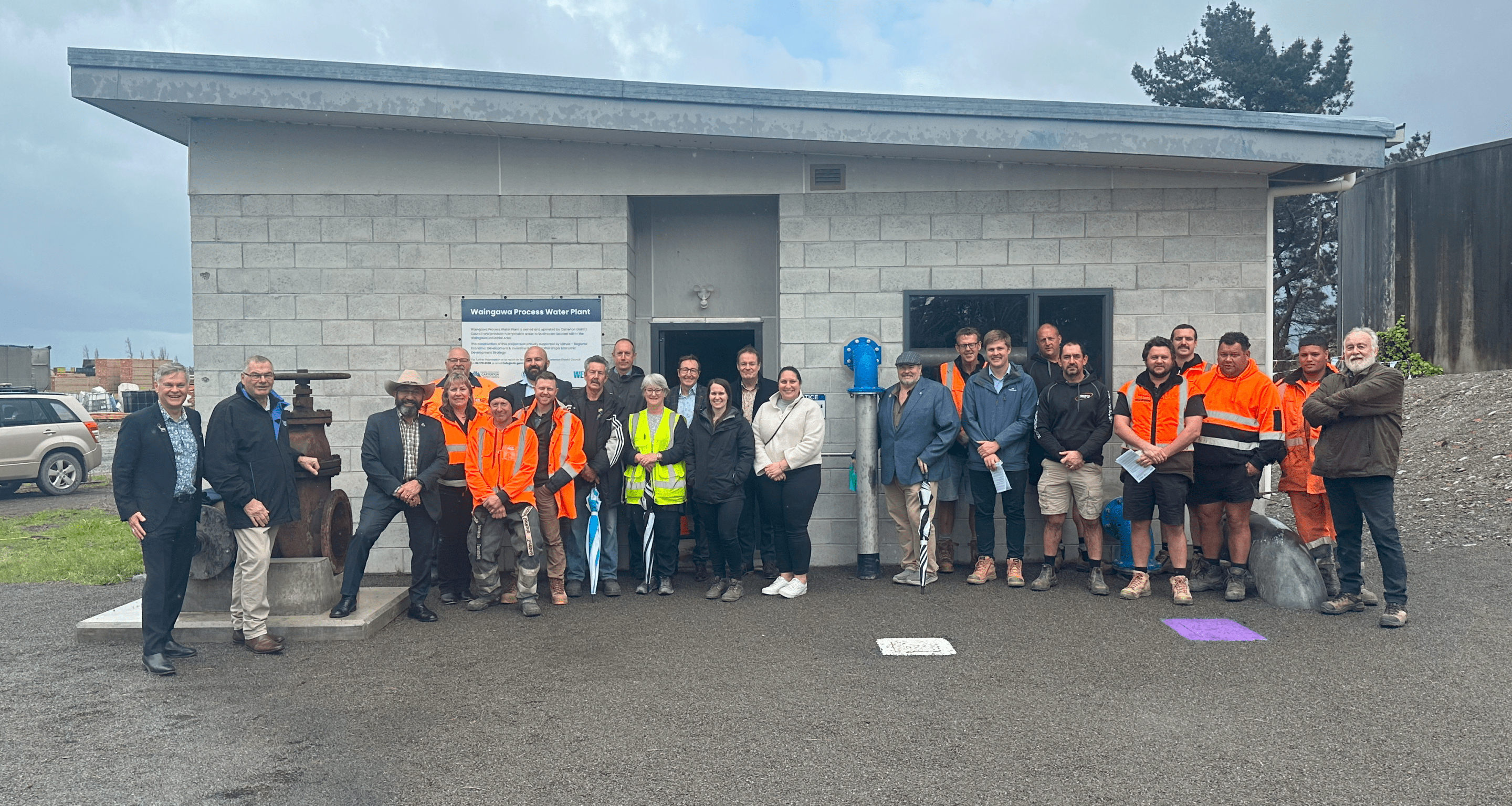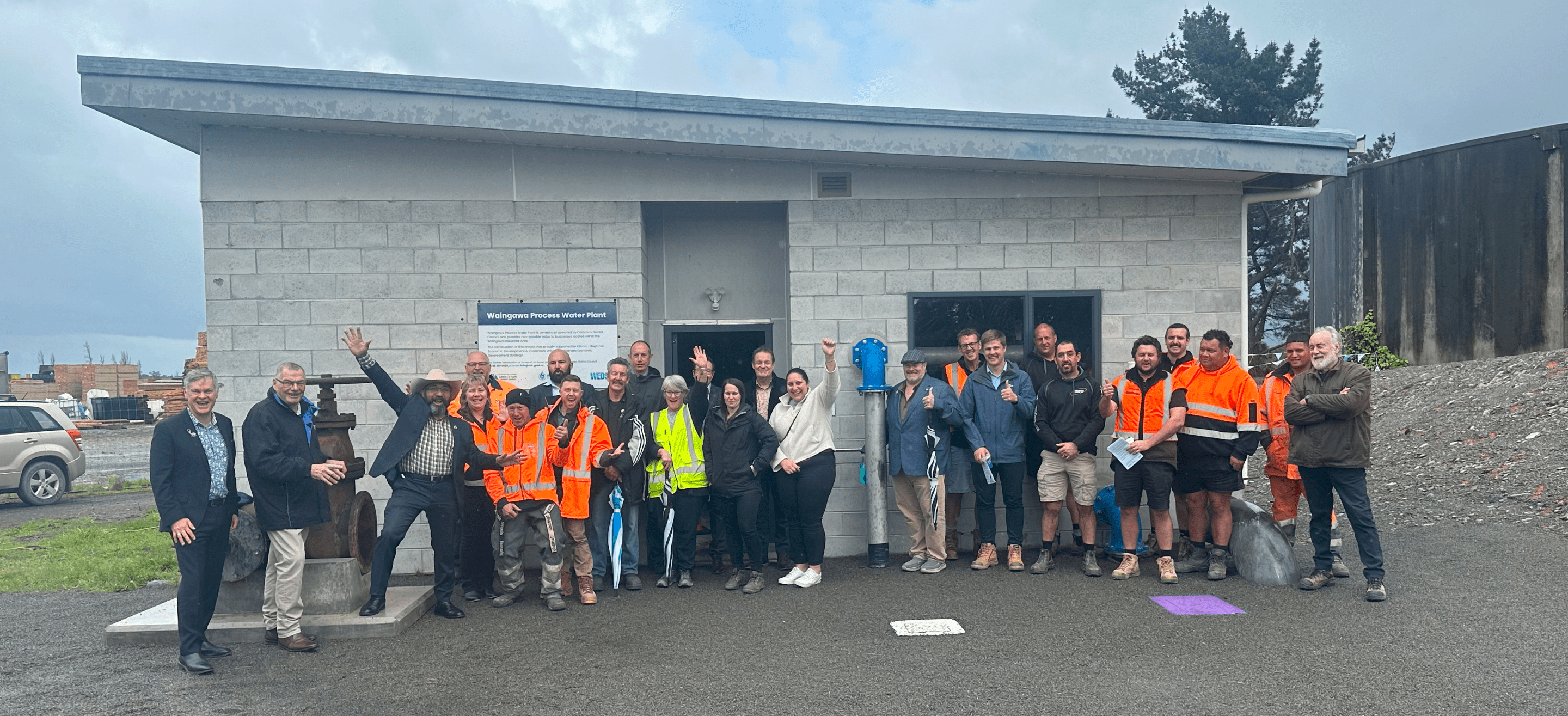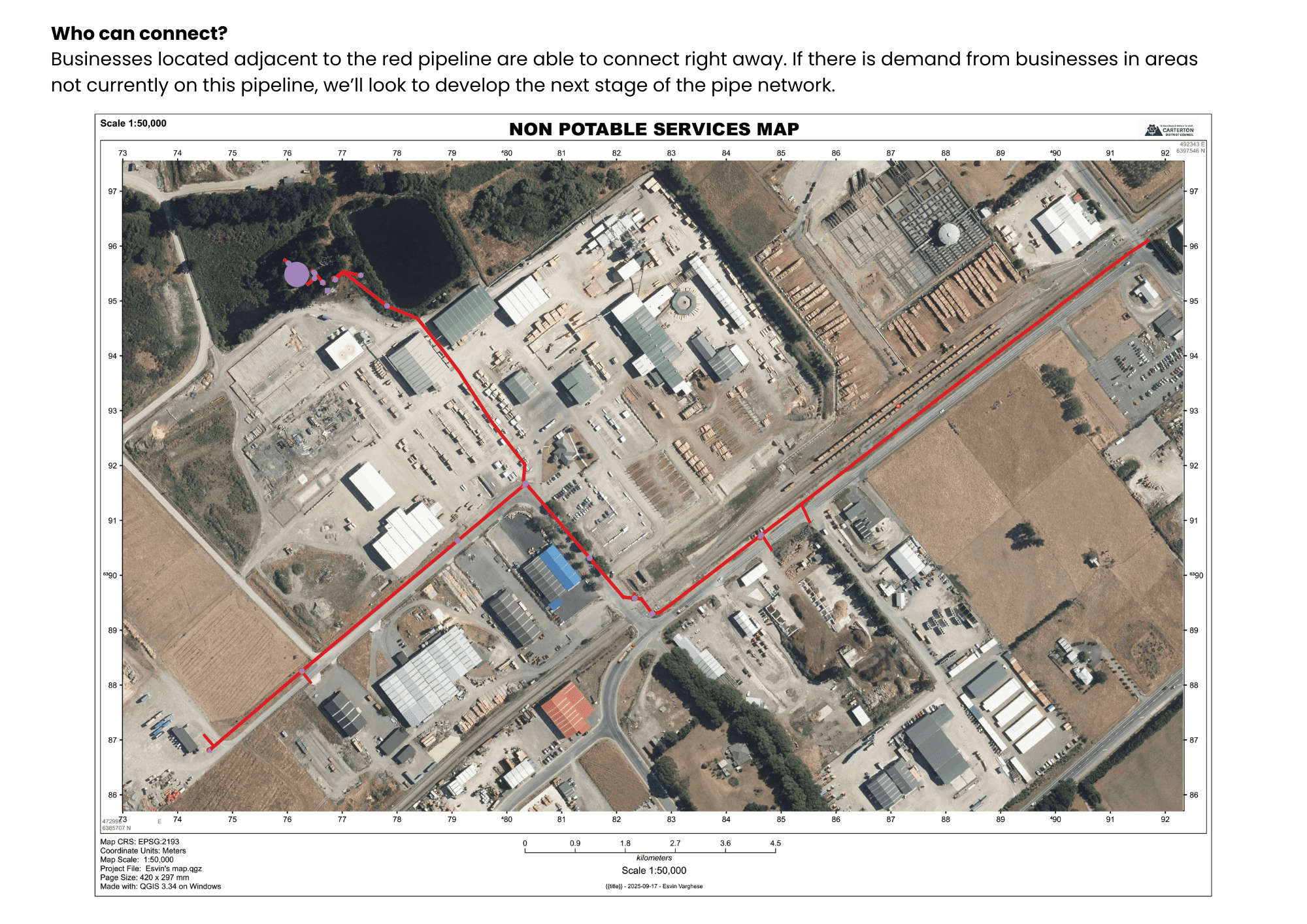Overview
What is the Waingawa Process Water Plant?
The Waingawa Processed Water Plant (WPWP) is a new non-potable water network available to businesses in the Waingawa Industrial Area.
Non-potable water is untreated or partially treated water that is not safe for drinking or food preparation. It can be used for purposes such as irrigation, industrial processes, and cleaning where direct human consumption is not involved.
Tell me more about the project and how much it cost
Completed in June 2025, the Waingawa Process Water Project delivers a cost-effective, untreated water supply directly to businesses in the Waingawa Industrial Area.
The $2.77 million initiative repurposed a century-old water race, a 2500m³ storage tank, and a newly constructed pump station to draw water from the Waingawa River for industrial use.
Supported by $1.75 million in funding through Kānoa – Regional Economic Development & Investment Unit, and an additional $128,000 from the Wairarapa Economic Development Strategy (WEDS), the project delivers vital infrastructure to support local industry. It enables businesses to access process water for a range of non-potable applications, including manufacturing, steam generation, and equipment cleaning.
A key success for Council was the ability to use resources already in place to assist in project delivery. This avoided the need to drill a new borehole, instead repurposing the existing water race to fill the plant tank, with targeted infrastructure upgrades ensuring reliable delivery of water to end users. This approach maximised the use of existing assets while minimising environmental impact.
By leveraging existing resources and streamlining delivery systems, the project has potential to significantly reduce operational costs for participating businesses.
The Waingawa Process Water Plant is a practical example of how strategic investment and smart planning can deliver long-term economic and environmental benefits.
Who can connect and how much is it?
Connecting to the non-potable water supply is a cost-effective alternative to potable water supply for eligible businesses. The cost for this new supply is $1.25 per cubic metre, significantly lower than the potable water rates, which range from $2.78 to $3.22 per cubic metre depending on usage volume.
To apply for a connection, there is a one-off application fee of $242. Installation costs vary depending on your business site. Our Council team can provide guidance on what may be involved for your property.
Network infrastructure has been laid as far as budget allowed for during initial development. While not all businesses can connect immediately, we will work to expand the network in response to demonstrated demand. Feel free to contact our team at any time to discuss this initial stage, these conversations will help influence the next stage of development.
The red line on the map below indicates where the current network pipes are placed: Waingawa Process Water FAQ (A4 (Landscape))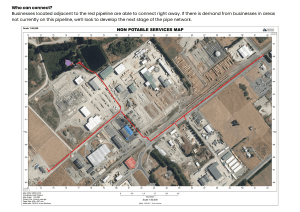
What's the pressure like and what happens in a drought?
The non-potable water is provided at Pressure 6 Bar – Max Flow Rate 35 l/s
Non-potable water may still be restricted during droughts to prioritise essential services. Council will issue guidance during such events.
How does Council monitor usage?
Usage will be metered in the same way as potable water supply. The same goes for billing.
Ready to connect?
Now is the time to contact our team and get it sorted!
Phone 06 379 4030 or email the team at info@cdc.govt.nz
NOTE: This asset is not part of the Local Water Done Well asset transfer, the Process Plant will remain with Carterton District Council as a revenue stream beyond 2027.
Timeline
Plant is open for business
The first stage of this project has now been completed and was opened by Hon Ron Mark on Monday 22 September. Eligible businesses in the Waingawa Industrial Area can now connect and access non-potable water at a significantly less cubic metre rate than our potable option.
Demand-based expansion
As more businesses express a desire to connect and the industrial area continues to grow, we’ll expand the current network so that connections are available throughout the entire industrial area.
Project team
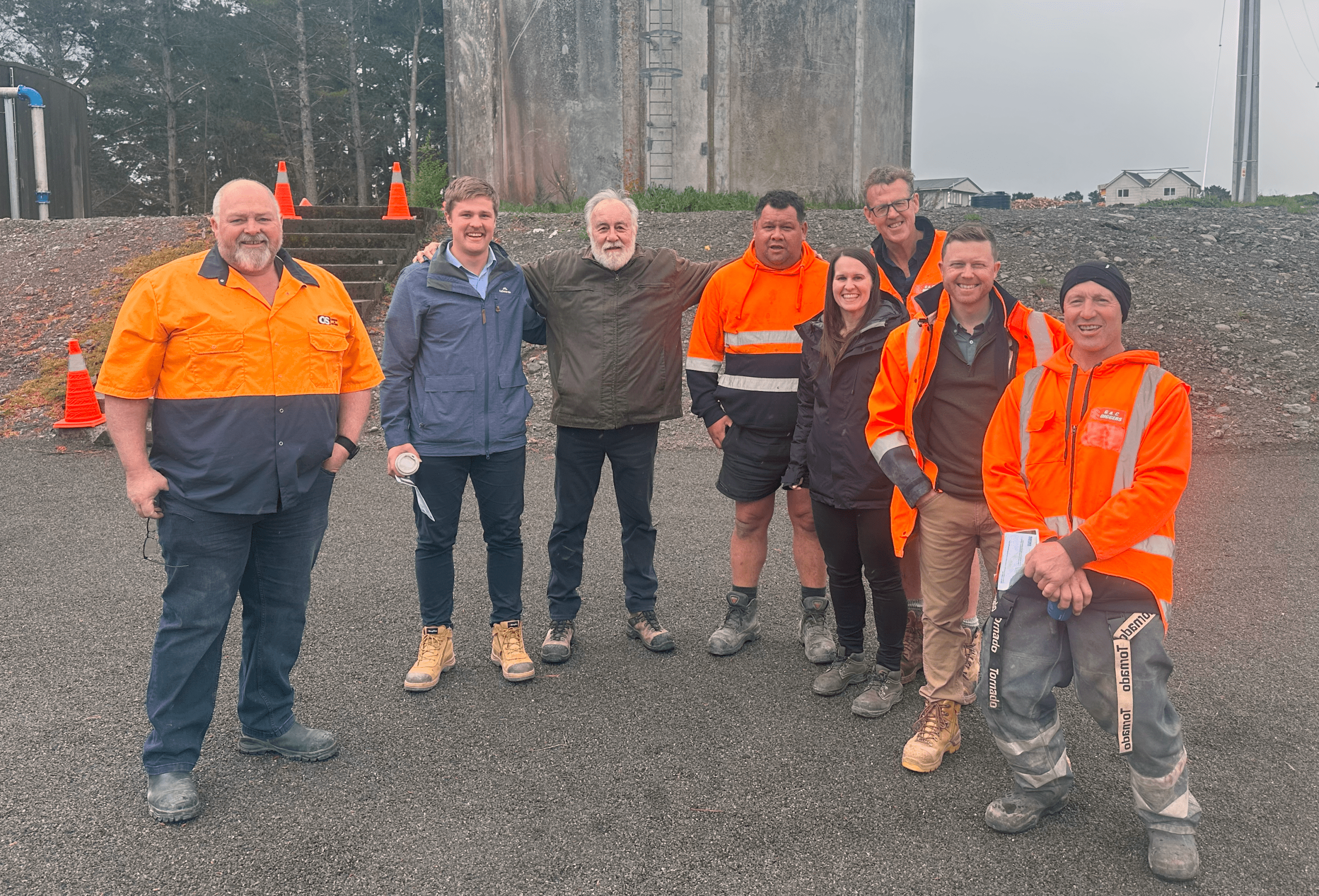
This project was delivered by local businesses, Ordish & Stevens, G&C Diggers and Egis Group. All pictured above with CDC Project Manager.

